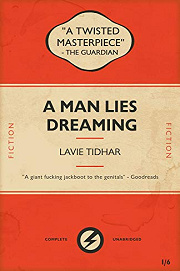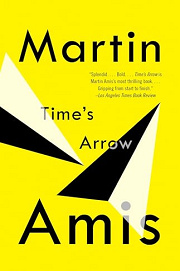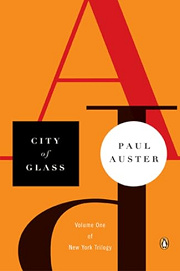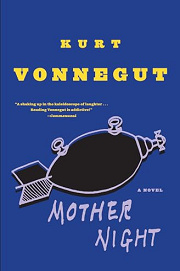Share your thoughts in a quick Shelf Talk!
A Man Lies Dreaming by Lavie Tidhar
In a rain-soaked noir city, a down-on-his-luck private eye navigates shadowy alleys, powerful secrets, and a world warped by nightmare and memory. A Man Lies Dreaming blends pulp atmosphere with razor-edged satire, delivering a haunting meditation on guilt, identity, and the stories we tell to survive.
Have you read this book? Share what you liked (or didn’t), and we’ll use your answers to recommend your next favorite read!
Love A Man Lies Dreaming but not sure what to read next?
These picks are popular with readers who enjoyed this book. Complete a quick Shelf Talk to get recommendations made just for you! Warning: possible spoilers for A Man Lies Dreaming below.
In A Man Lies Dreaming, did you enjoy ...
... the Jewish noir alternate timeline and weary gumshoe vibe?
The Yiddish Policemen's Union by Michael Chabon
If what hooked you was Wolf stalking 1939 London in a world skewed by a different turn of history—and the way his shabby PI case brushes against Oswald Mosley’s blackshirts—then you’ll love how The Yiddish Policemen’s Union plants washed‑up detective Meyer Landsman in a Jewish Sitka that exists because Israel never took root. Like Wolf’s dive bars and shabby offices, Landsman’s flophouse and cold streets drip with atmosphere, and the murder he chases ripples into a community’s fate. It’s that same mix of alt‑timeline melancholy, Jewish memory, and hardboiled investigation that powered Wolf’s case and Shomer’s dream.
... inhabiting the mind of a monstrous figure to interrogate evil?
Time's Arrow by Martin Amis
You followed Wolf—Adolf Hitler recast as a grubby London PI—with horrified fascination, the book daring you to sit inside a monster’s skin while Shomer dreams him into a tawdry ruin. Time’s Arrow pulls a similar, startling trick: we ride backward through the life of a Nazi doctor, witnessing his crimes in reverse. As A Man Lies Dreaming weaponizes proximity to Wolf for moral shock and dark irony, Amis’s reverse narrative forces you to confront atrocity from an angle that’s as disturbing as it is revelatory.
... noir that keeps collapsing into a story about stories?
City of Glass by Paul Auster
If the split between Wolf’s gritty case and Shomer’s Auschwitz chapters thrilled you—the way the detective yarn keeps slipping to reveal the hand that’s dreaming it—then City of Glass is your next labyrinth. A writer receives a misdial meant for a detective, takes the case, and finds the investigation curdling into a mirror maze of identities and authorship. Like Shomer scripting Wolf’s every stumble, Auster keeps exposing who’s telling what, turning the red notebook into a trapdoor under the mystery.
... an alternate history that contains a book reshaping reality?
The Man in the High Castle by Philip K. Dick
One of the most electric jolts in A Man Lies Dreaming is realizing Shomer’s campbound imagination is spawning Wolf’s London—fiction shaping a world. In The Man in the High Castle, characters living under Axis rule pass around a forbidden novel that imagines a different outcome to the war, and it starts to warp their reality. As Shomer’s pulp dream toys with fate and power, Dick’s nested text and I Ching consultations blur the border between story and world in equally uncanny ways.
... bleak, mordant humor aimed at fascists and their fellow travelers?
Mother Night by Kurt Vonnegut
If you grinned (and winced) at the book’s gallows jokes—Wolf’s humiliations, the send‑ups of British fascists, the pulp patter curdled by the camps—Vonnegut’s Mother Night hits that same nerve. Written as the confession of a Nazi propagandist who might also be an American spy, it skewers ideology with deadpan bite. Like Tidhar’s grim jokes that undercut Wolf’s swagger, Vonnegut’s humor disarms and condemns at once, making the laughter feel dangerously close to the bone.
Unlock your personalized book recommendations! Just take a quick Shelf Talk for A Man Lies Dreaming by Lavie Tidhar. It’s only a few questions and takes less than a minute.





